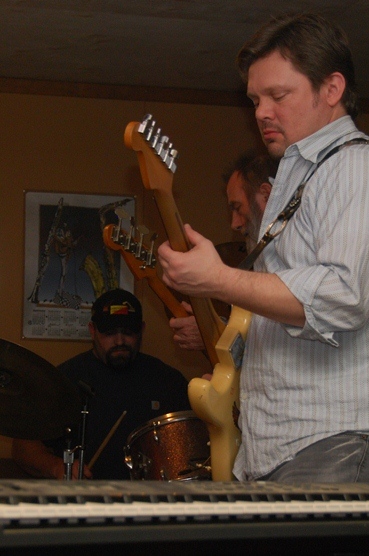How We Express Our Intuition

It is human nature to want to express our experiences, to be heard, seen and understood. Every form of art is connected to this desire to express. Musicians, painters, actors, writers, movie makers are all giving voice to an aspect of their experience in a creative way, exploring their light or shadow with words, role play, stories, color and sound. The act of expression in-and-of-itself provides a sense of relief and comfort. Without an audience we can express and still feel energy has been moved through writing in a journal or singing alone in the car. It allows us to find peace or at least a feeling of forward movement.
The throat chakra is where we carry the energy of communication and expression. Our relationship with expression can be hindered and altered due to the responses we receive from others and how we interpret them. Our sixth sense intuitive awareness may have led us to express things as children that were outside of the comfort zone of adults. We noticed an unspoken truth that the adults around us didn’t want to acknowledge and spoke up. The response ranged from invalidation (being told we’re wrong) to punishment.
Through the experience of others discomfort with our expression we learn to control it, shut it down or present it in terms easier for people to handle. If we grow up only getting attention for negative behavior we may learn to use our expression to intentionally make people uncomfortable. This can result in self-sabotage, conflict and attracts negative energy from others.
Artistic expression is where we are granted permission to show the full spectrum of human experience from beauty to pain, without being directly judged. A song about heartbreak, a painting that draws out the beauty of our environment, a poem that mysteriously hints at secrets one wouldn’t speak out loud, we accept and applaud. Yet if the artist takes their conversation out of the art form and to the dinner table of life we suddenly become uncomfortable with the raw truth.
To get beyond the socially acceptable framework of art as a forum to express our full-spectrum of intuitive awareness, we have to revisit old wounds and remove the rules that were programmed into our behavior before we were conscious of our free will. This means noticing when our throat or belly gets tight as a signal from our higher Self that we are holding onto something that may need to be to expressed.
As we notice these beliefs and automatic responses in our body and behaviors that aren’t in alignment, we can have an internal conversation with the information. Ask our self, “What do I want to do as an adult with this awareness in this situation?” It may be enough to acknowledge that we need to physically leave, or we may notice it’s necessary for us to directly address some unspoken aspect between us and another person. The more neutral and non-judging we can be in expression of our experience, the more powerfully it lands.
The power of our intuitive awareness is not in the knowing but in how it impacts our life. When we pay attention to our inner-signals and speak up with those who we trust our inner-guidance has purpose. We’ve all said in retrospect, “I had a feeling that person wasn’t trust worthy” but if we had communicated our awareness to a third party we trusted for reflection, it may have protected us from some harm. Expressing our awareness gives our consciousness a place to land and mull over the insight. Expression allows the flow of energy generated in a given situation to continue uninhibited without getting bottled up or stuck. It grounds our relationships in the present moment.
Cool photo of Aubrey….looks like he’s enjoying playing with the band. I can relate to shutting down as a child from not being validated or heard. Or not being brave enough to voice my thoughts. Your suggestion to be non- judging in addressing something between ourselves and others is good. I’m working on sharing/responding in a positive way and tone of voice when I feel threatened or disturbed instead of in a defensive or annoyed tone of voice.
Sandy, I so appreciate your sharing your self-awareness. Its vulnerable just to reflect on these aspects of self, allowing others to see our thoughts and feelings. Thanks!